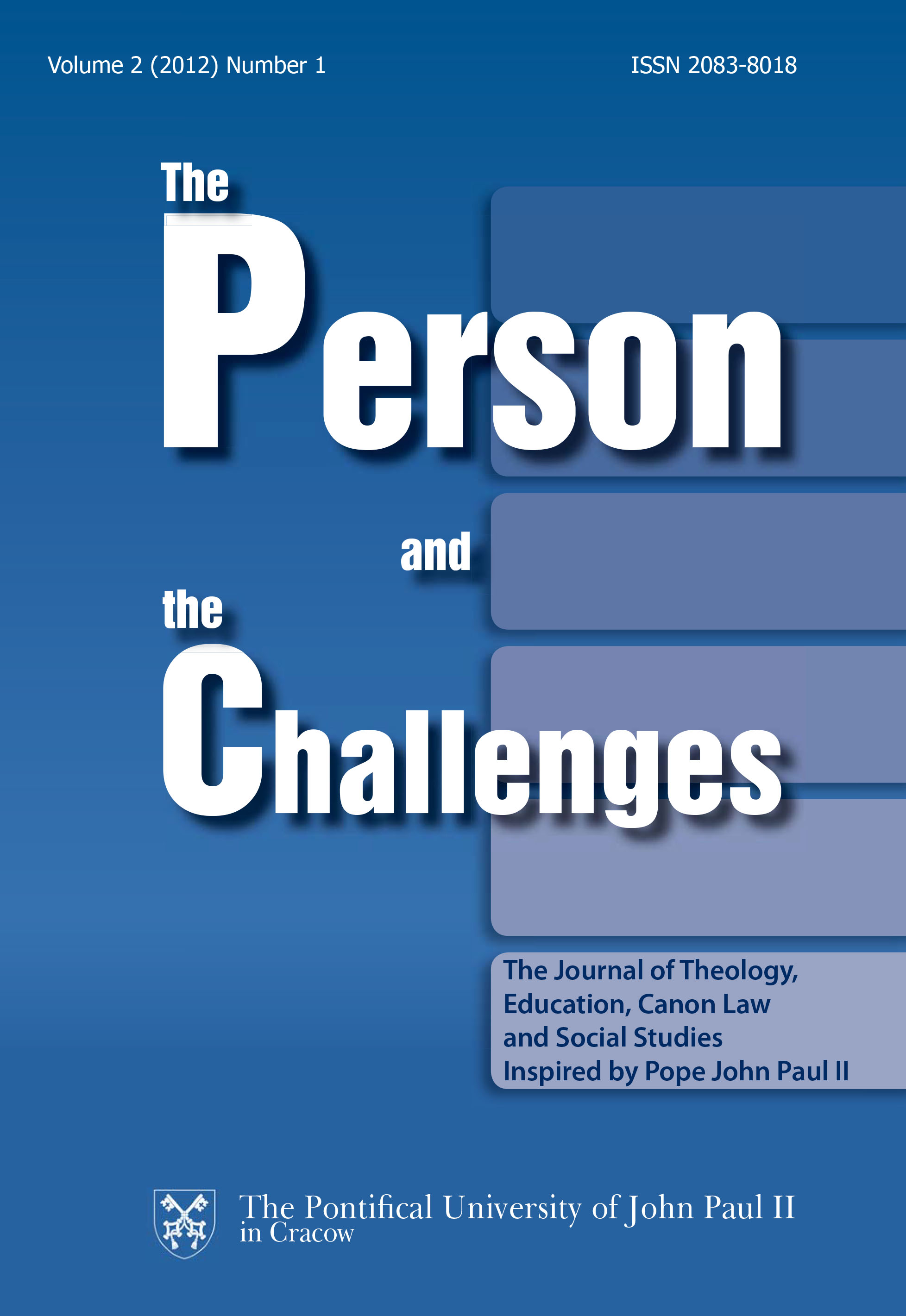Heilige und vorletzte Wirklichkeit. Einsatz Johannes Pauls II. für die Würde des menschlichen Lebens
DOI:
https://doi.org/10.15633/pch.875Słowa kluczowe:
Anti-life mentality, civilization of death, dignity, value of life, sacredness of life, death, dyingAbstrakt
John Paul II could be rightly called the ‘Admirer of life’. His deep faith, along with the existential reasons, the sources of which could be traced back to his traumatic experiences during the Second World War, moulded him into a strong defender of human life. The Pope teaches that a civilization’s worth is determined by its attitude towards human life; it is either the civilization of life, or the destructive civilization of death. Since body constitutes an integral part of the whole human person, its dignity is enhanced. In his ‘theology of the body’ John Paul II stressed not only the sharing of the body in the dignity of the person, but also its importance as a sign and a needle in the compass of the human intellect in its search for moral norms. The Polish Pope insisted on the value of human life from its inception to natural death, and often presented various ruling elites with a challenge: Life is sacrosanct and this truth must be reflected in legislation. Human life is, according to John Paul II, the penultimate things; life is limited, mortal. The value of human life is determined by its destination: the human being is to find his fulfillment in eternity, where he will have a share in the everlasting life. Thirty years after the elevation of Karol Wojtyla to the Holy See we may confidently give him the credit for influencing the change in sensitivity to human life on a truly global scale. Though the contrary tendencies are very strong, thanks to the Polish Pope the impact of the culture of death has been significantly restricted.
Pobrania
Opublikowane
Numer
Dział
Licencja
Prawa autorskie (c) 2015 Marian Machinek

Utwór dostępny jest na licencji Creative Commons Uznanie autorstwa 4.0 Międzynarodowe.
Autorzy publikujący w czasopiśmie udzielają jego wydawcy zgody o następującej treści:
- Autor zachowuje autorskie prawa majątkowe do utworu, a jednocześnie udziela wydawcy czasopisma zgody na jego pierwszą publikację w wersji drukowanej i wersji online na licencji Creative Commons Uznanie autorstwa 4.0 Międzynarodowe oraz zgody na wykonywanie opracowań, w tym przekładów.
- Autor ma możliwość udzielania zgody niewyłącznej na opublikowanie utworu w wersji, która ukazała się w czasopiśmie (np. zamieszczenia go w repozytorium instytucjonalnym lub opublikowania w książce), wraz z informacją o jego pierwszej publikacji w czasopiśmie.
- Autor może umieścić swój utwór online (np. w repozytorium instytucjonalnym lub na swojej stronie internetowej) jeszcze przed zgłoszeniem utworu do czasopisma.

